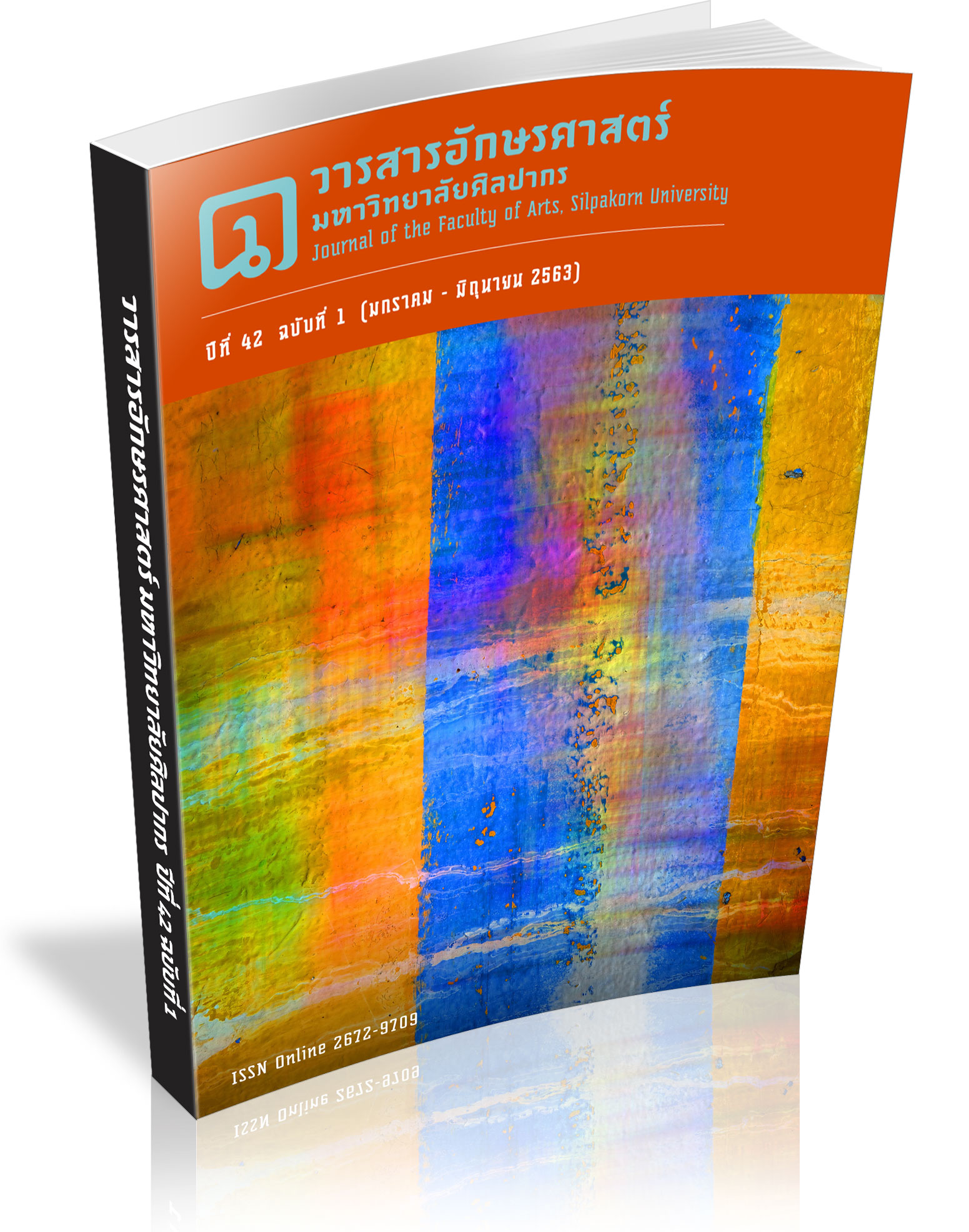Development of a Management Model for the Memory of Thai Universities
Keywords:
Memory, Memory management, University memoryAbstract
The research aimed to (1) study the current context regarding the management of the memory of Thai universities, (2) analyze and classify types of the memory of Thai universities, (3) study the managing processes of the memory of Thai universities, and (4) develop a management model applicable for the memory of Thai universities. In this qualitative research, eight Thai universities were purposively selected according to some given criteria regarding the management of the memory of Thai universities. Research instrument was in-depth interview forms. The research yielded four significant results: 1) archives, museums or historical halls were the mechanisms in most of the eight Thai universities for managing the memory of their universities; 2) types of the memory of Thai universities could be classified into the categories of content-focused and media forms-focused; 3) all eight Thai universities applied management including principles and practices of both archives and museums to design and implement the managing processes of their university’s memory including the stages of acquisition, storage, maintenance, and services and dissemination; 4) a management model applicable for the
memory of Thai universities was developed comprising the classification of the types of university memories, the university memory management process, and the significant factors contributing to the success of the university memory management.
Downloads
References
Abhakorn, R. (2011). Selection criteria for the memory of the world register. In The epigraphic archives of Wat Pho: memory of the world. Bangkok: Wat Phra Chetuphon Vimolmangklararam Rajworamahaviharn. (In Thai)
Baddeley, A. D. (2004). The psychology of memory. In The essential handbook of memory disorders for clinicians. New York: John Wiley & Sons, Ltd.
Burkey, B. (2014). The future of remembering: how multimodal platforms and social media are repurposing our digitally shared pasts in cultural heritage and collective memory practices. Doctoral Dissertation, PH.D. in Journalism and Communication, University of Oregon, United States. Retrieved 29 January 2020, from https://scholarsbank.uoregon.edu/xmlui/handle/1794/18378
Chavalit, M. (2011). Memory of the world programme. In The epigraphic archives of Wat Pho: memory of the world. Bangkok: Wat Phra Chetuphon Vimolmangklararam Rajworamahaviharn. (In Thai)
Choo, C. W. (2002). Information management for the intelligent organization: the art of scanning the environment (3rd ed.). New Jersey: American Society for Information Science and Technology.
Cook, T. (1997). What is past is prologue: a history of archival ideas since 1898, and the future paradigm shift. Archivaria, 43, 17-63.
Edmondson, R. (2002). Memory of the world: general guidelines to safeguard documentary heritage. Paris: UNESCO. Retreived 14 February 2020, from https://unesdoc.unesco.org/ark:/48223/pf0000125637
Halbwach, M. (1992). The reconstruction of the past. In Collective memory. Chicago: University of Chicago Press.
ISO 15489-1. (2016). Information and documentationrecords managementPart: concepts and principles (2nd ed.). Geneva: ISO.
Kennedy, J. & Schauder, C. (1998). Records management (2nd ed.). NSW: Addison Wesley Longman Australia Pty Limited.
Lapwong, Y. (2014). The first survey of university museums in Thailand. University Museums and Collections Journal, 6/2013,1-16.
Mahidol University Archives and Museums. (2012). The memories of Mahidol University. Nakhon Pathom: Mahidol University Archives and Museums. (In Thai)
Matassa, F. (2011). Museum collections management. London: Facet Publishing.
McKemmish, S. (1993). Introducing archives and archival programs. In Keeping archives (2nd ed.). Victoria: The Australian Society of Archivists Inc.
Naewthong, D. (2005). Administration and management of government university archives in Thailand. Master Thesis, M.A. in Archives and records management, Silpakorn University, Thailand. (In Thai)
Narasaj, B. (2010). Review article: Memory in heritage studies: A primary survey. Journal of Mekong Societies, 6 (2), 27-51. Retrieved from https://so03.tci-thaijo.org/index.php/mekongjournal/article/view/6829. (In Thai)
Olick, J. K. (2008). Collective Memory. In International encyclopedia of the social sciences (2nd ed.). Detroit: Macmillan Reference.
Pattarakorn, S. (2017). Information classification. In Information organization and retrieval (3rd ed.). Nonthaburi: Sukhothai Thammathirat Open University. (In Thai)
Perez, G. & Ramos, I. (2013). Understanding organizational memory from the integrated management systems (ERP). Journal of Information Systems and Technology Management, 10(3), 541-560.
Stein, E. W. (1995). Organizational memory: Review of concepts and recommendations for management. Journal of lnformation Management, 15(2), 17-32.
Surangkul, S. & Manmart, L. (2010). Guidelines for archival management in higher educational institutions: a case study of Khon Kaen University. KKU Research journal (graduate studies), 10(3), 145-155. (In Thai)
Thai National Commission for UNESCO. (2017). Memory of the world programme of UNESCO. Retrieved December 1, 2020 from https://www.bic.moe.go.th/images/stories/pdf/memory_of_the_world_22-7-2562.pdf. (In Thai)
Yenbamrung, P. (2013). Technologies for digital libraries. In Technology for information management (2nd ed.). Nonthaburi: Sukhothai Thammathirat Open University. (In Thai)
Downloads
Published
How to Cite
Issue
Section
License
ผู้เขียนบทความต้องยินยอมในข้อกำหนดต่าง ๆ ของวารสารก่อนส่งบทความตีพิมพ์



